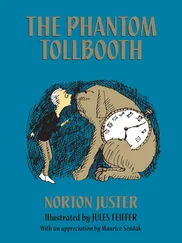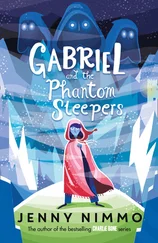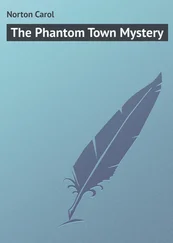Carol Norton - The Phantom Yacht
Здесь есть возможность читать онлайн «Carol Norton - The Phantom Yacht» — ознакомительный отрывок электронной книги совершенно бесплатно, а после прочтения отрывка купить полную версию. В некоторых случаях можно слушать аудио, скачать через торрент в формате fb2 и присутствует краткое содержание. Жанр: foreign_prose, foreign_children, на английском языке. Описание произведения, (предисловие) а так же отзывы посетителей доступны на портале библиотеки ЛибКат.
- Название:The Phantom Yacht
- Автор:
- Жанр:
- Год:неизвестен
- ISBN:нет данных
- Рейтинг книги:3 / 5. Голосов: 1
-
Избранное:Добавить в избранное
- Отзывы:
-
Ваша оценка:
- 60
- 1
- 2
- 3
- 4
- 5
The Phantom Yacht: краткое содержание, описание и аннотация
Предлагаем к чтению аннотацию, описание, краткое содержание или предисловие (зависит от того, что написал сам автор книги «The Phantom Yacht»). Если вы не нашли необходимую информацию о книге — напишите в комментариях, мы постараемся отыскать её.
The Phantom Yacht — читать онлайн ознакомительный отрывок
Ниже представлен текст книги, разбитый по страницам. Система сохранения места последней прочитанной страницы, позволяет с удобством читать онлайн бесплатно книгу «The Phantom Yacht», без необходимости каждый раз заново искать на чём Вы остановились. Поставьте закладку, и сможете в любой момент перейти на страницу, на которой закончили чтение.
Интервал:
Закладка:
The old woman looked at him scathingly. “Well, Gibralter, where in heaven’s name would I be going? I’m not crazy enough yet to stay long in the Center. Here, you take my bags; the girls can carry their own.”
“Yessum, Miss Moore,” the boy flushed up to the roots of his red hair. He knew that he wasn’t making a very good impression on the young ladies. He glanced at them furtively as they all walked toward the stage; then, when he saw them smiling toward him, not critically but in a most friendly fashion, there was merry response in his warm red-brown eyes. What he said was: “If them bags are too hefty, set ’em down an’ I’ll come back for ’em.”
“O, we can carry them easily,” Nann assured him.
The small girl on the high seat was staring down at them with eyes and mouth open. She had on a nondescript dress which very evidently had been made over from a garment meant for someone older. When the girls glanced up, she smiled down at them, showing an open space where two front teeth were missing.
“What’s your name, little one?” Nann called up to her. The lad was inside the coach helping Miss Moore to settle among her bags.
The child’s grin grew wilder, but she did not reply. Nann turned toward her brother, who was just emerging: “What is your little sister’s name?” she asked.
The boy flushed. Nann and Dori decided that he was easily embarrassed or that he was unused to girls of his own age. But they better understood the flush when they heard the answer: “Her name’s Behring.” Then he hurried on to explain: “I know our names are queer. It was Pa’s notion to give us geography names, being as our last is Strait. That’s why mine’s Gibralter. Yo’ kin laugh if yo’ want to,” he added good-naturedly. “I would if ’twasn’t my name.” Then in a low voice, with a swift glance toward the station, he confided, “I mean to change my name when I come of age. I sure sartin do.”
The girls felt at once that they would like this boy whose sensitive face expressed his every emotion and who had so evident a sense of humor. They were about to climb inside of the coach with Miss Moore when a shrill, querulous voice from a general store across from the station attracted their attention. A tall, angular woman in a skimp calico dress stood there. “Howdy, Miss Moore,” she called, then as though not expecting a reply to her salutation, she continued: “Behring Strait, you come here right this minute and mind the baby. What yo’ gallavantin’ off fer, and me with the supper gettin’ to do?” Nann and Dori glanced at each other merrily, each wondering which strait the baby was named after.
The small girl obeyed quickly. Mrs. Strait impressed the listeners as a woman who demanded instant obedience. As soon as the three passengers were settled inside, the coach started with a lurch. The sandy road wound through the wide, swampy meadows. It was rough and rutty. Miss Moore sat with closed eyes and, as she was wedged in between two heavy bags, she was not jounced about as much as were the girls. They took it good-naturedly, but Dories found it hard to imagine how she could have endured the journey if she had been alone with her queer Aunt Jane. Nann decided that the old woman feined sleep on all occasions to avoid the necessity of talking to them.
At last, even above the rattle of the old coach, could be heard the crashing surf on rocks, and the girls peered eagerly ahead. What they saw was a wide strip of sand and a row of weather-beaten cottages, boarded up, as Dori had prophesied, and beyond them white-crested, huge gray breakers rushing and roaring up on the sand.
The boney white horse came to a sudden stop at the edge of the beach, nor would it attempt to go any farther. The boy leaped over a wheel and threw open the back door. “Guess you’ll have to walk a piece along the beach, Miss Moore. The coach gets stuck so often in the sand ol’ Methuselah ain’t takin’ no chances at tryin’ to haul it out,” he informed the occupants.
The girls were almost surprised to find that the horse hadn’t been named after a strait. Miss Moore threw back her veil and opened her eyes at once. Upon hearing what the boy had to say, she leaned forward to gaze at the largest cottage in the middle of the row. She spoke sharply: “Gibralter, why didn’t your father carry out my orders? I wrote him distinctly to open up the cottage and air it out. Why didn’t he do that when he brought over the supplies, that’s what I’d like to know? I declare to it, even if he is your father, I must say Simon Strait is a most shiftless man.”
The boy said at once, as though in an effort to apologize: “Pa’s been real sick all summer, Miss Moore, and like ’twas he fergot it, but I kin open up easy, if I kin find suthin’ to pry off the boards with. I think likely I’ll find an axe, anyhow, out in the back shed whar I used to chop wood fer you. I’m most sure I will.”
Miss Moore sank back. “Well, hurry up about it, then. I’ll stay in the coach till you get the windows uncovered.” When the boy was gone, the woman turned toward her niece. “Open up that small black bag, Dories; the one near you, and get out the back-door key. There’s a hammer just inside on the kitchen table, if it’s where I left it.” She continued her directions: “Give it to Gibralter and tell him, when he gets the boards off the windows, to carry in some wood and make a fire. A fog is coming in this minute and it’s as wet as rain.”
The key having been found, the girls ran gleefully around the cabin in search of the boy. They found him emerging from a shed carrying a hatchet. He grinned at them as though they were old friends. “Some cheerful place, this!” he commented as he began ripping off the boards from one of the kitchen windows. “You girls must o’ needed sea air a lot to come to this place out o’ season like this with a – a – wall, with a old lady like Miss Moore is.” Dories felt sure that the boy was thinking something quite different, but was not saying it because it was a relative of hers about whom he was talking. What she replied was: “I can’t understand it myself. I mean why Great-Aunt Jane wanted to come to this dismal place after everyone else has gone.”
They were up on the back porch and, as she looked out across the swampy meadows over which a heavy fog was settling, then she continued, more to Nann than to the boy: “I promised Mother I wouldn’t be afraid of ghosts, but honestly I never saw a spookier place.”
The boy had been making so much noise ripping off boards that he had only heard the last two words. “Spooks war yo’ speakin’ of?” he inquired. “Well, I guess yo’ll think thar’s spooks enough along about the middle of the night when the fog horn’s a moanin’ an’ the surf’s a crashin’ out on the pint o’ rocks, an’ what’s more, thar is folks at Siquaw Center as says thar’s a sure enough spook livin’ over in the ruins that used to be ol’ Colonel Wadbury’s place.”
The girls shuddered and Dories cast a “Didn’t I tell you so” glance at her friend, but Nann, less fearful by nature, was interested and curious, and after looking about in vain for the “ruin”, she inquired its whereabouts.
Gibralter enlightened them. “O, ’tisn’t in sight,” he said, “that is, not from here. It’s over beyant the rocky pint. From the highest rock thar you kin see it plain.”
Then as he went on around the cottage taking off boards, the girls followed to hear more of the interesting subject. “Fine house it used to be when my Pa was a kid, but now thar’s nothing but stone walls a standin’. A human bein’ couldn’t live in that ol’ shell, nohow. But – ” the boy could not resist the temptation to elaborate the theme when he saw the wide eyes of his listeners, “’long about midnight folks at the Center do say as how they’ve seen a light movin’ about in the old ruin. Nobody’s dared to go near ’nuf to find out what ’tis. The swamps all about are like quicksand. If you step in ’em, wall, golly gee, it’s good-bye fer yo’. Leastwise that’s what ol’-timers say, an’ so the spook, if thar is one over thar, is safe ’nuf from introosion.”
Читать дальшеИнтервал:
Закладка:
Похожие книги на «The Phantom Yacht»
Представляем Вашему вниманию похожие книги на «The Phantom Yacht» списком для выбора. Мы отобрали схожую по названию и смыслу литературу в надежде предоставить читателям больше вариантов отыскать новые, интересные, ещё непрочитанные произведения.
Обсуждение, отзывы о книге «The Phantom Yacht» и просто собственные мнения читателей. Оставьте ваши комментарии, напишите, что Вы думаете о произведении, его смысле или главных героях. Укажите что конкретно понравилось, а что нет, и почему Вы так считаете.












